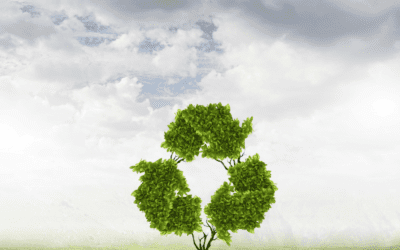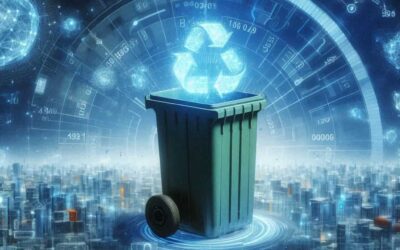If we are to meet the significant challenges facing the planet today, we need to embrace innovation and experimentation. We need to look further than natural resources, and investigate other ways of generating the energy we need.
One of these areas of innovation is turning waste materials into usable energy. In fact, more than just an area of innovation, this is part of a successful circular economy – repurposing waste materials to keep our lives turning in other ways.
Of course, in an ideal waste hierarchy, we should be trying to minimise our usage of energy, and our production of waste. Overall, we want to reduce the amount of waste we produce – whether that’s plastic, paper, metals, wood or other materials. The less waste we generate, the better.
There will always be waste…
Where waste is generated, we have to think carefully about what we do with it. Landfill is simply not an option. Waste of any kind going into landfill contributes to greenhouse gas emissions and harms the planet. And with some materials taking even hundreds or thousands of years to break down – if at all – we have to commit to better ways of dealing with the waste we produce.
Reuse and recycling is a big part of this – and nearly always the preferred option. Not only does this make economic sense; it also prevents us from mining or creating completely new materials, and it significantly extends the life of both products and materials.
Is waste-to-energy sustainable?
Waste-to-energy is certainly a growing market. According to a 2023 report by Statista, the UK had 53 operational plants in 2021, producing 10 terawatt hours of electricity. Compared with 75.3 terawatt hours generated by offshore and onshore wind farms combined in the UK in 2020, it’s clear to see that waste-to-energy production is at lower levels, but it is a good provider into the energy mix – something that’s important as we try to reduce our reliance both on fossil fuels and on imported energy.
Whether it’s a truly sustainable or ‘green’ technology depends on the type of plant – or more accurately, the type of fuel being produced. There are several different ways to turn waste into energy:
Electricity plants – generating electricity from waste is usually done through combustion. The waste is burned, producing heat that drives a turbine which generates electricity. Like most waste-to-energy processes, there is the potential for quite a lot of refinement to this process, and it uses a lot of energy itself. In 2021, researchers at Washington University in St. Louis USA, developed a system to generate electricity from waste water, whilst also cleaning the water., using a modified microbial fuel cell.
Gas production – it is possible to produce gas from both man-made and organic waste. Anaerobic digestion is the process of taking organic matter, such as food waste or animal products, and breaking them down to produce both biogas and fertiliser. This is a technology with potential, and is seen by many as a better way of dealing with this type of waste than composting – which releases significant amounts of CO2 into the atmosphere. For other, more general waste, plants use a process called gasification. This produces a synthesised gas which can then be used in other products. We still need to look in detail at these processes to see if they are sustainable in the long term.
What does the future look like?
Our ideal future is one where we significantly reduce the waste we produce, making as much use of re-used and recycled materials as possible. Realistically, however, we’re likely to be living in a world where waste is still very much an issue.
That’s why we are dedicated to helping waste and recycling companies to do two important things:
- Help to stop waste going to landfill by playing a major role in collection and sorting.
- Take advantage of the commercial opportunities available in the circular economy.
We do this through Waste & Recycling One; a dedicated, integrated software solution designed specifically for companies in the waste, recycling, clean energy & environmental sectors. It streamlines your business processes, strengthens your commercial proposition and helps you to build a sustainable business in every sense of the word.
To find out more, contact our team today or visit our showcase below.






